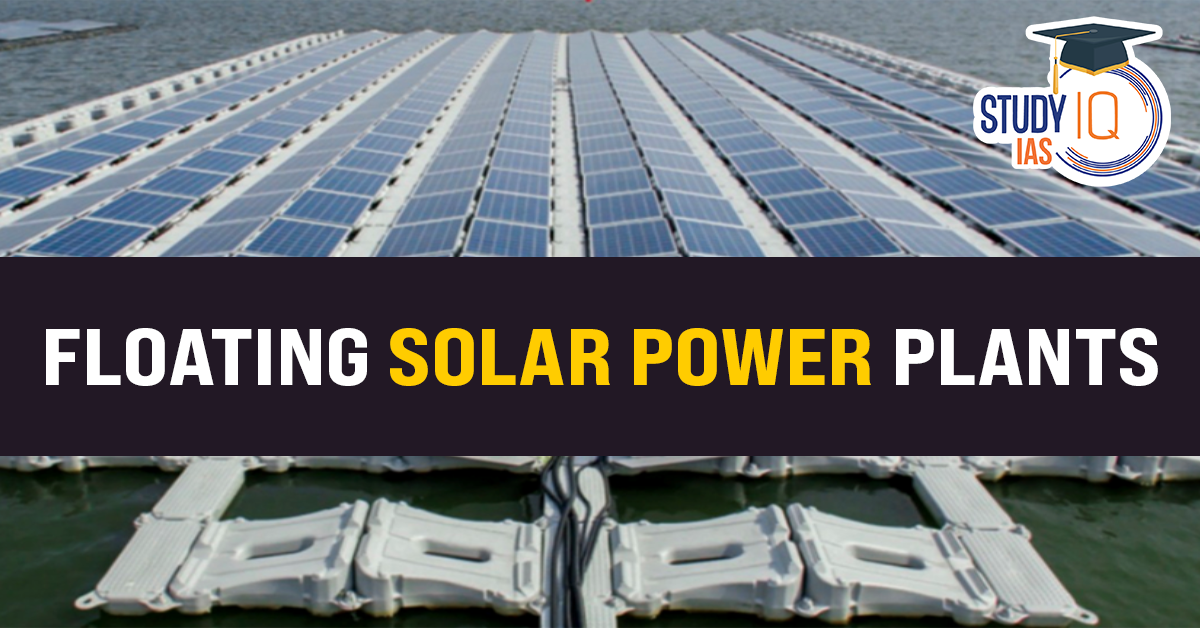Floating Solar Power Plants
- It is a solar panel system that is installed on floating structures on bodies of water, such as lakes, ponds, reservoirs or canals. They are also called
- Covering 10% of the world’s hydropower reservoirs with ‘floatovoltaics’ would install electrical capacity equivalent to that provided by all electricity-generating fossil fuel plants in operation worldwide.
- Advantages over traditional solar power plants:
- Land use: Floating solar power plants don’t require land space, so the land can be used for other purposes.
- Water cooling: The water’s cooling effect improves the performance of solar panels by 5-10%.
- Reduced evaporation: Floating solar power plants reduce the amount of water lost through evaporation.
- Reduced algae growth: Floating solar power plants reduce the amount of sunlight reaching the water surface, which reduces algae growth.
- Floating solar power plant in India:
- Ramagundam, Telangana (100 MW)
- Omkareshwar Dam in Khandwa, Madhya Pradesh – 600 MW
- After construction it will be the largest floating solar power plant in the world.


 Effectiveness of Tobacco Taxation in Ind...
Effectiveness of Tobacco Taxation in Ind...
 Private Sector Participation in Defence ...
Private Sector Participation in Defence ...
 India–France Strategic Cooperation in ...
India–France Strategic Cooperation in ...




















